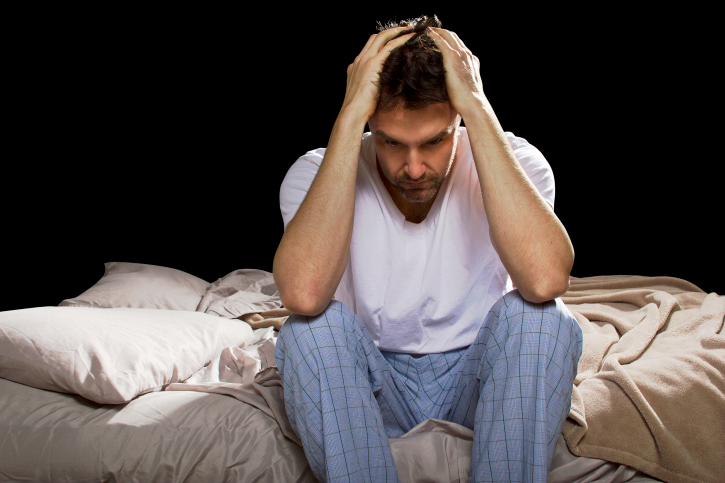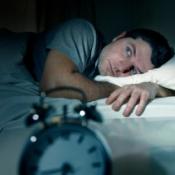 Most sleep research focuses on the inability to fall asleep, but people who have trouble staying asleep may experience more negative moods. According to a new study published in the journal Sleep, interrupted sleep for three or more consecutive nights produces worse symptoms than inadequate sleep due to staying up too late. About 10% of Americans experience insomnia, and frequent wakefulness during the night is one of the most common symptoms.
Most sleep research focuses on the inability to fall asleep, but people who have trouble staying asleep may experience more negative moods. According to a new study published in the journal Sleep, interrupted sleep for three or more consecutive nights produces worse symptoms than inadequate sleep due to staying up too late. About 10% of Americans experience insomnia, and frequent wakefulness during the night is one of the most common symptoms.
The Effects of Interrupted Sleep
To study how various sleep disturbances affect well-being, researchers recruited 62 healthy men and women with normal sleep patterns, then divided them into three groups. A control group slept through the night without being interrupted, another group had a later-than-usual bedtime, and the third group was awakened eight times during the night. The pattern repeated for three days.
Researchers assessed study participants’ moods each day. The day after the first night of sleep deprivation, both the later-than-usual bedtime group and the interrupted sleep group had similarly poor moods. By the second night, clear differences had emerged. Members of the interrupted sleep group had a 31% decrease in positive mood, compared to 12% among those who went to bed later than usual. The two groups did not have any noteworthy differences in negative mood, which suggests the problem with interrupted sleep is that it interferes with positive feelings rather than creating negative ones.
The challenge with interrupted sleep, the study’s authors emphasize, is that it interferes with the body’s ability to go through all stages of sleep, including the deepest sleep that usually results in a feeling of restoration in the morning.
How Much Sleep Do You Really Need?
The National Sleep Foundation recently changed its sleep guidelines for adults. The organization now recommends that adults ages 18-64 get between 7 and 9 hours of sleep each night. Seniors age 65 and older should aim for 7 to 8 hours of sleep.Good sleep habits can help combat various sleep disorders and encourage better sleep quality. The National Sleep Foundation recommends the following:
- Turn off smartphones and other screens when you sleep, and do not sleep with them in the bed.
- Limit food intake directly before bedtime.
- Get plenty of natural sunlight to help regulate your circadian rhythms.
- Reduce your caffeine intake, especially in the hours before bedtime.
- Develop a sleep routine that relaxes you. Avoid upsetting conversations, stressful movies, and other things that might keep you up before bed.
- If you struggle to fall asleep at night, avoid napping during the day.
References:
- Interrupted sleep impacts mood more than lack of sleep, study finds. (2015, November 2). Retrieved from http://www.medicalnewstoday.com/articles/301879.php
- National Sleep Foundation recommends new sleep times. (2015, February 2). Retrieved from https://sleepfoundation.org/media-center/press-release/national-sleep-foundation-recommends-new-sleep-times
- Preidt, R. (2015, October 30). Interrupted sleep not good for your mood, study suggests. Retrieved from http://health.usnews.com/health-news/articles/2015/10/30/interrupted-sleep-not-good-for-your-mood-study-suggests
- Sleep hygiene. (n.d.). Retrieved from https://sleepfoundation.org/ask-the-expert/sleep-hygiene

The preceding article was solely written by the author named above. Any views and opinions expressed are not necessarily shared by GoodTherapy.org. Questions or concerns about the preceding article can be directed to the author or posted as a comment below.

 How Poor Sleep Affects Hormones and Mental Health
How Poor Sleep Affects Hormones and Mental Health From the Sleep Queen: Simple Tips and Yoga to Help You Sleep
From the Sleep Queen: Simple Tips and Yoga to Help You Sleep 15 Secrets for a Good Night’s Sleep
15 Secrets for a Good Night’s Sleep

Please fill out all required fields to submit your message.
Invalid Email Address.
Please confirm that you are human.
Leave a Comment
By commenting you acknowledge acceptance of GoodTherapy.org's Terms and Conditions of Use.